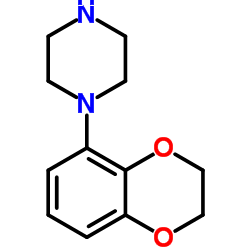FDA grants orphan status for Amarantus' eltoprazine to treat PD-LID

The US Food and Drug Administration (FDA) has granted orphan drug designation for Amarantus BioScience Holdings' (AMBS') eltoprazine to treat Parkinson's disease levodopa-induced dyskinesia (PD-LID).
Eltoprazine is a small molecule 5HT1A / 1B partial agonist in clinical development to treat PD-LID, adult attention deficit hyperactivity disorder (ADHD) and Alzheimer's aggression.
So far, the drug has been evaluated in more than 680 human subjects, and has a well-established safety profile.
Originally, the drug was developed by Solvay Pharmaceuticals for the treatment of aggression and following the company's merger with Abbott Pharmaceuticals, the eltoprazine programme was out-licensed to PsychoGenics.
"PD-LID is a tremendously debilitating disorder, and we will now begin evaluating expedited pathways to market for eltoprazine that may now be afforded by the orphan drug designation."
Later, eltoprazine was licensed by PsychoGenics to Amarantus following successful proof-of-concept trials in PD-LID and adult ADHD.Amarantus has published positive results from a Phase II initial proof-of-concept clinical trial in February last year, and highlighted the publication of two independent peer-reviewed scientific publications describing the mechanism of action of eltoprazine to treat PD LID.
Amarantus president and CEO Gerald Commissiong said: "The grant of this orphan drug designation for eltoprazine in PD-LID squarely positions Amarantus as an orphan drug company, as each of our pipeline candidates in our therapeutics division has received such designations from the FDA for one or more indications.
The therapeutics division of AMBS has development rights to eltoprazine, a Phase IIb-ready small molecule indicated, and owns the intellectual property rights to a therapeutic protein known as mesencephalic-astrocyte-derived neurotrophic factor (MANF).
The division is currently developing MANF-based products as treatments for brain and ophthalmic disorders.
Recently, AMBS acquired the rights to the Engineered Skin Substitute programme (ESS), a regenerative medicine-based approach for treating severe burns with full thickness autologous skin grown in tissue culture.
11 February 2016
http://www.pharmaceutical-technology.com/



